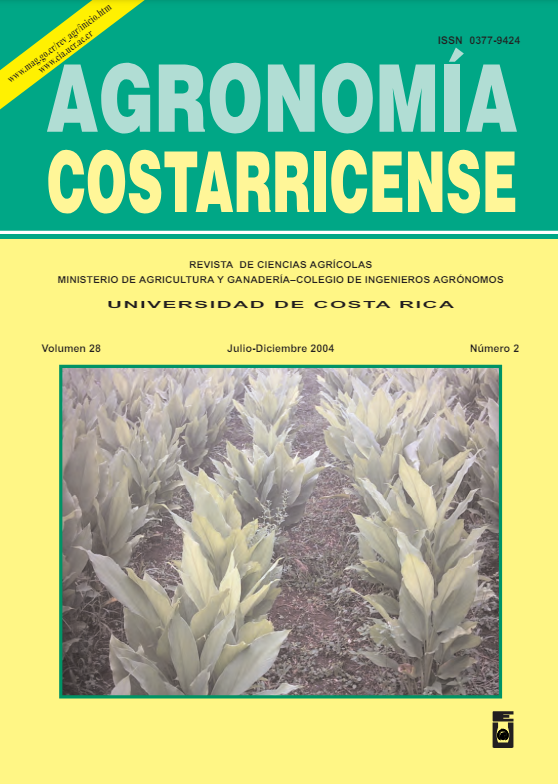Abstract
In forest nurseries for tropical hardwood tree species there are no criteria or reference values for quality control procedures, nor proper sampling quality control procedure. A random sampling procedure using cypress (Cupressus lusitanica) seedling beds as strata was utilized. The sampling unit consisted in 28 seedlings where 11 quantitative and qualitative variables per seedling were registered. A 6% sampling intensity for production beds with 2000 seedlings is proposed, for a target sampling error below 5%. Sampling procedures registered 1.87% seedlings with forking problems, 0.51% with apical shoot damage, 2.21% with crocked stem, 15% in suppressed sociological position, 0.68% with mechanical damages, 0.51% with severe phytosanitary problems, 13.5% with low-quality roots, and 3.92% under quality 3 or rejection category. Roots registered a length growth of 1.39 cm week-1, 1.14 mm week-1 at neck-diameter and 1.3 cm week-1 for total height. The mortality rate was stabilized between the 12th and 15th week after transplanting and reached near 25%. Genetic (hereditary) and silviculture as possible causes of the cypress seedling quality in nurseries are discussed. In a quality index on a 1-3 scale (1 for best or ideal seedling), a general quality value of 1.59 was determined. Production beds with seedlings quality 1+2 <85%, height variation coefficients >15%, >10% suppressed seedlings, >15% severely diseased seedlings and mortality rates >10%, should be considered as rejection criteria and indicators for production units in cypress nurseries.
##plugins.facebook.comentarios##

This work is licensed under a Creative Commons Attribution-NonCommercial-NoDerivatives 4.0 International License.
Copyright (c) 2024 Agronomía Costarricense


